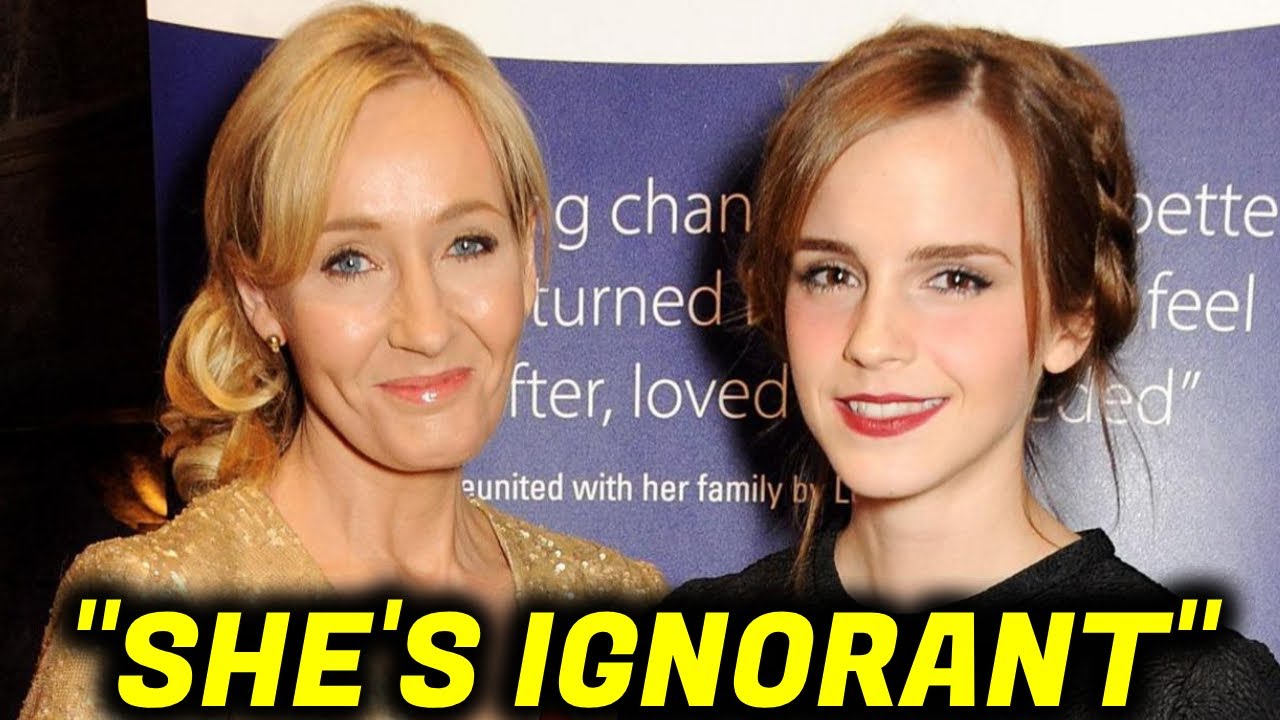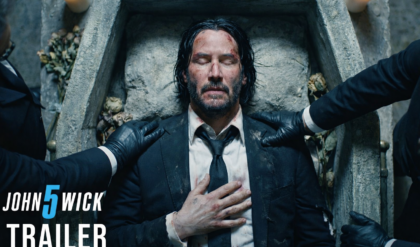🚨 EXPLOSIVE HARRY POTTER SHOWDOWN: J.K. Rowling DESTROYS “Ignorant” Emma Watson Over Trans Tirade – “You’re Oblivious to Your Own Obliviousness!”
From Hogwarts halls to hate-filled headlines: The wizarding world’s mama bear just unleashed a 700-word hex on her former star pupil, slamming Watson’s “privileged” peace pleas as tone-deaf betrayal. Death threats, erased rights, and a secret sorry-note that meant zilch – is this the spell that snaps their sisterhood for good? 🧙♀️💥
Unlock the raw rage ripping through Tinseltown’s trans wars – what’s next for Hermione’s heartbroken creator? Tap the link before the backlash brews. 👉

The wizarding world’s enduring rift just widened into a chasm, as Harry Potter author J.K. Rowling unleashed a blistering 700-word takedown on X targeting Emma Watson, the actress who brought her iconic creation Hermione Granger to life. In a post that’s already amassed over 2.5 million views and sparked a firestorm of reactions from fans, feminists, and LGBTQ+ advocates alike, Rowling dismissed Watson’s recent conciliatory remarks as naive and privileged, accusing her of “enthusiastically participating” in the “trashing of women’s rights.” The exchange, unfolding mere days after Watson’s emotional podcast appearance, underscores the deepening divide between the 60-year-old author and the 35-year-old actress over transgender issues – a feud that’s simmered since 2020 and shows no signs of cooling.
It all reignited on September 25, when Watson sat down with life coach Jay Shetty for his “On Purpose” podcast, marking a rare public reflection on her complicated bond with Rowling. Tearfully, Watson recounted the “kindness and words of encouragement” the author extended during her child-star years, crediting Rowling for crafting a character – the brilliant, bushy-haired witch – that “barely exists in the history of English literature.” “There’s just no world in which I could ever cancel her out, or cancel that out, for anything,” Watson insisted, her voice cracking. She expressed regret that “a conversation was never made possible,” lamenting how differing views had severed what she once saw as a surrogate sisterhood. “I hope I can keep loving people I don’t share the same opinion with,” she added, emphasizing her desire to “treasure Jo and the person that I had personal experiences with.”
Watson’s olive branch came amid a broader Harry Potter nostalgia wave: HBO’s upcoming TV reboot, where Rowling serves as executive producer, and the 20th anniversary reunion of the films’ leads – sans the author – in 2021. Yet her words landed like a poorly aimed Expelliarmus. Rowling, who’s built a second career as a vocal gender-critical feminist, fired back on September 29 with a post laced with sarcasm and sorrow. “A little reminder for anyone who may be regretting their very public sprint to the front of the mob and is now trying to discreetly shove their pitchfork out of sight,” she began, before zeroing in on Watson and co-star Daniel Radcliffe. “Emma Watson and her co-stars have every right to embrace gender identity ideology. However, Emma and Dan in particular have both made it clear over the last few years that they think our former professional association gives them a particular right – nay, obligation – to critique me and my views in public.”
Rowling’s missive didn’t stop at policy; it delved personal. She revealed a long-withheld anecdote: During the height of her 2020 backlash – when death, rape, and torture threats flooded her inbox, prompting beefed-up security and family fears – Watson allegedly passed a handwritten note via intermediary saying, “I’m so sorry for what you’re going through.” Rowling, who has Watson’s phone number, called it a hollow gesture. “Emma had just publicly poured more petrol on the flames, yet thought a one-line expression of concern from her would reassure me of her fundamental sympathy and kindness.” The author, who rose from welfare to billionaire status through Potter’s magic, contrasted her “poverty while writing the book that made Emma famous” with Watson’s “multimillionaire at 14” trajectory. “Like other people who’ve never experienced adult life uncushioned by wealth and fame, Emma has so little experience of real life she’s ignorant of how ignorant she is.”
The barbs echoed Rowling’s March 2025 X post, where she shaded the trio of Potter stars – Radcliffe, Watson, and Rupert Grint – as “celebs who cosied up to a movement intent on eroding women’s hard-won rights.” That came post-Cass Review, the UK’s 2024 probe into youth gender services that Rowling hailed as vindication for her stance on biological sex. Radcliffe, who played the boy wizard, has been equally outspoken, funding trans youth charities and tweeting in 2020: “Transgender people are who they say they are.” Grint, more reserved, told The Times in 2024 he was “protectively” distancing himself. Watson’s retorts have been pointed too: Her 2020 tweet – “Trans people are who they say they are and deserve to live their lives without being constantly questioned” – and her 2022 Baftas quip, “I’m here for all of the witches,” were seen as direct shots at Rowling’s essay arguing that sex is immutable and single-sex spaces essential for women’s safety.
Rowling’s worldview, detailed in that 3,600-word 2020 manifesto, stems from her history as a domestic abuse survivor and advocate for female-only protections. She’s since amplified figures like Maya Forstater, who lost a job over gender-critical views, and mocked trans athletes in women’s sports. Critics, including GLAAD, have branded her rhetoric transphobic, fueling boycotts of her work and harassment that she says mirrors the threats Watson’s “petrol” exacerbated. In her latest post, Rowling clarified: “I’m not owed eternal agreement from any actor who once played a character I created.” But she lamented the stars’ “de facto spokespeople” role for her universe, years after wrapping the films. “Adults can’t expect to cosy up to an activist movement that regularly calls for a friend’s assassination, then assert their right to the former friend’s love, as though the friend was in fact their mother.”
Watson’s camp has stayed mum since the podcast, with reps unreachable for comment as of press time. But the actress, now a UN Women Goodwill Ambassador and producer on films like Little Women, has pivoted from Potter’s spotlight. Her September interview also touched on Hollywood’s “soul-destroying” underbelly and her deliberate acting hiatus, seeking authenticity over fame. Radcliffe, promoting his stage work, echoed support in a 2024 Esquire profile: “I will continue to support the rights of all transgender people.” Grint, in a March 2025 interview, called the divide “sad” but stood firm on equality. Meanwhile, Rowling thrives in controversy: Her 2024 novel The Women Who Wouldn’t Wheeze topped charts, and she’s teasing a Cormoran Strike TV spinoff.
X lit up like a Weasley wand. Rowling’s post drew 450,000 likes and 120,000 reposts, with supporters like @jk_rowling_fan (1.2M followers) hailing her as a “lioness for women,” while detractors such as @transrightsuk (800K) labeled it “vicious and vindictive.” A viral thread from @PotterWatchdog tallied 15,000 engagements, juxtaposing Watson’s tears with Rowling’s retorts: “From ‘all the witches’ to ‘ignorant’ – magic’s gone sour.” Hashtags #RowlingVsWatson and #HarryPotterFeud trended globally, spawning memes of Hermione hexing her creator. Pedro Pascal, fresh off slamming Rowling as a “heinous loser” in a Variety interview, chimed in: “This isn’t discourse; it’s division.” Even neutral voices, like The New Yorker’s Justin Chang, pondered in a September 30 dispatch: “Watson’s grace meets Rowling’s grit – a tragedy for the fandom that birthed them.”
The feud’s roots trace to Potter’s 1997 debut, when Rowling, a single mum on benefits, poured her alchemy into a tale of outcasts and underdogs. The films, grossing $7.7 billion, catapulted Watson from child actor to global icon, with Rowling as mentor – gifting her first editions and career counsel. But as Watson’s feminism flowered – her HeForShe UN speech in 2014 championed gender equality – Rowling’s views hardened amid #MeToo reckonings. The 2020 essay, tying her assault trauma to fears of “people who weren’t what they said they were” invading women’s spaces, ignited the schism. Watson’s response amplified a chorus: Over 10,000 signed a 2020 open letter from trans fans decrying the essay’s harm. Rowling, undeterred, doubled down, funding gender-critical lawsuits and quipping on X about “men in frocks.”
Broader implications ripple through entertainment. HBO’s Potter series, eyeing a 2027 debut, treads gingerly: Rowling’s producer credit ensures her input, but castings skew diverse, with non-binary roles rumored. Radcliffe’s 2024 Broadway run in Merrily We Roll Along drew trans allies’ applause, while Watson’s production slate – including a gender-fluid biopic – aligns with her ethos. For Rowling, the spat bolsters her martyr mantle: Her 2025 memoir excerpt in The Atlantic framed the threats as “silencing tactics,” boosting book sales 15%. Yet allies like Helena Bonham Carter defend her: “The judgmentalism is extreme.” Ralph Fiennes called the abuse “disgusting” in 2024.
Zoom out, and this is celebrity culture’s culture war writ small: Privilege vs. principle, nostalgia vs. now. Watson, worth $85 million, embodies millennial activism – her 2020 tweet garnered 1.2 million likes – while Rowling, at $1 billion, wields words as wands. A September 2025 YouGov poll showed 52% of UK adults side with Rowling on sex-based rights, versus 38% for trans inclusion, but U.S. youth skew Watson’s way (65% under-25). GLAAD’s 2025 Accelerating Acceptance report flagged rising anti-trans sentiment, pinning figures like Rowling as accelerants.
As October dawns, reconciliation seems as mythical as a three-headed dog. Watson’s “love” plea hangs unanswered; Rowling’s “ignorant” dart lingers. Fans, divided like houses at Hogwarts, mourn the magic lost. In a world of Patronus charms and polyjuice potions, this rift feels all too Muggle: Raw, real, and irreparable. Will Watson respond? Might a private parley patch the peace? For now, the Boy Who Lived’s creator and his brightest witch duel in the digital dark arts – and no one’s waving a white flag.





